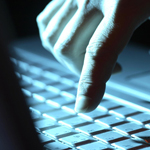
18 Feb Internet Crime Education: Counterfeit Cashier’s Check
About the Crime
The counterfeit cashier’s check scam targets individuals that use Internet classified advertisements such as Craigslist to sell merchandise. Typically, an interested party located outside the United States contacts a seller. The seller is told that the buyer has an associate in the United States that owes him money. As such, he will have the associate send the seller a cashier’s check for the amount owed to the buyer.
The amount of the cashier’s check will be thousands of dollars more than the price of the merchandise and the seller is told the excess amount will be used to pay the shipping costs associated with getting the merchandise to his location. The seller is instructed to deposit the check, and as soon as it clears, to wire the excess funds back to the buyer or to another associate identified as a shipping agent. In most instances, the money is sent to locations in West Africa (Nigeria).
Because a cashier’s check is used, a bank will typically release the funds immediately, or after a one or two day hold. Falsely believing the check has cleared, the seller wires the money as instructed.
In some cases, the buyer is able to convince the seller that some circumstance has arisen that necessitates the cancellation of the sale, and is successful in conning the victim into sending the remainder of the money. Shortly thereafter, the victim’s bank notifies him that the check was fraudulent, and the victim responsible for the full amount of the check.
Tips to Prevent This Crime
- Inspect the cashier’s check.
- Ensure the amount of the check matches in figures and words.
- Check to see that the account number is not shiny in appearance.
- Be watchful that the drawer’s signature is not traced.
- Official checks are generally perforated on at least one side.
- Inspect the check for additions, deletions, or other alterations.
- Contact the financial institution on which the check was drawn to ensure legitimacy.
- Obtain the bank’s telephone number from a reliable source, not from the check itself.
- Be cautious when dealing with individuals outside of your own country.
For more information or if you believe you’ve been a victim of a crime visit the FBI Internet Crime Complaint Center website at ic3.gov.



